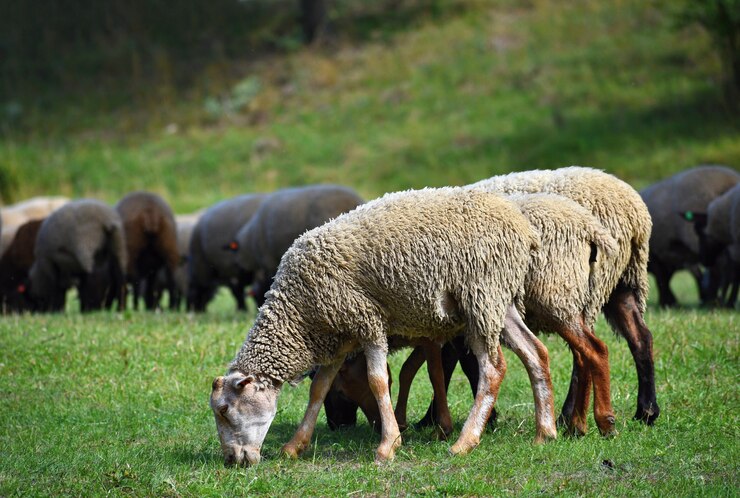Vandor sheep, also known as the South African Vandor, are a breed of domestic sheep originating from South Africa. Renowned for their hardiness, adaptability, and excellent meat and wool production, Vandor sheep have become increasingly popular among farmers and breeders in South Africa. If you’re considering breeding and farming Vandor sheep, here are ten essential things you should know:
1. Origins and History:
Vandor sheep are indigenous to South Africa and are descended from the indigenous fat-tailed and hair sheep breeds of the region. They have been selectively bred over generations for traits such as adaptability to harsh climates, disease resistance, and high-quality meat and wool production.
2. Dual-Purpose Breed:
Vandor sheep are classified as a dual-purpose breed, meaning they are suitable for both meat and wool production. They are prized for their robust constitution, rapid growth rates, and high-quality carcasses, making them ideal for commercial farming operations.
3. Adaptability to Harsh Environments:
One of the key attributes of Vandor sheep is their remarkable adaptability to a variety of environmental conditions. They thrive in arid and semi-arid regions, where grazing opportunities may be limited and temperatures fluctuate dramatically. Their ability to withstand heat, drought, and sparse vegetation makes them well-suited to the diverse landscapes of South Africa.
4. Excellent Meat Quality:
Vandor sheep are valued for their superior meat quality, characterized by tender, flavorful cuts with excellent marbling. Their meat is renowned for its succulence and is favored by consumers for its rich taste and texture. Vandor lambs reach market weight relatively quickly, making them economically viable for meat production.
5. High-Quality Wool Production:
In addition to meat production, Vandor sheep are prized for their high-quality wool. Their fleece is dense, lustrous, and uniform in texture, with good staple length and crimp. Vandor wool is valued for its softness, durability, and suitability for various textile applications, including weaving, knitting, and felting.
6. Selecting Breeding Stock:
When establishing a Vandor sheep breeding program, it’s essential to select breeding stock with desirable traits such as good conformation, prolificacy, and disease resistance. Look for ewes and rams with strong maternal instincts, high fertility rates, and excellent growth potential to ensure the success of your breeding endeavors.
7. Nutritional Requirements:
Proper nutrition is critical for the health and productivity of Vandor sheep. Provide a balanced diet rich in protein, energy, vitamins, and minerals to support growth, reproduction, and wool production. Ensure access to clean water, pasture, and supplementary feed as needed, particularly during periods of high demand such as pregnancy and lactation.
8. Health and Disease Management:
Maintaining optimal health is essential for Vandor sheep to thrive and reach their full potential. Implement a comprehensive health management program that includes vaccination, deworming, parasite control, and regular health checks by a qualified veterinarian. Practice good biosecurity measures to prevent the spread of infectious diseases within your flock.
9. Breeding and Reproduction:
Vandor sheep are known for their high fertility rates and prolificacy, making them efficient breeders. Ewes typically cycle year-round, with peak breeding seasons occurring in autumn and spring. Implement sound breeding practices, such as controlled mating and proper ram-to-ewe ratios, to optimize reproductive efficiency and lambing rates.
10. Marketing and Value-Added Products:
As a Vandor sheep farmer, explore various marketing channels and value-added products to maximize the profitability of your operation. Consider selling lamb meat directly to consumers, supplying wool to local textile mills, or producing value-added products such as wool bedding, yarn, or artisanal crafts. Emphasize the unique qualities of Vandor sheep and their products to attract discerning customers and build a loyal customer base.
Breeding and farming Vandor sheep in South Africa offer a promising opportunity for agricultural enthusiasts and commercial farmers alike. By understanding the breed’s characteristics, nutritional requirements, health management practices, and marketing strategies, breeders can establish successful and sustainable Vandor sheep enterprises that contribute to the thriving agricultural sector of South Africa.
Join 'Farmers Mag' WhatsApp Channel
Get the latest Farming news and tips delivered straight to your WhatsApp
CLICK HERE TO JOIN






